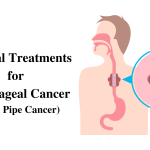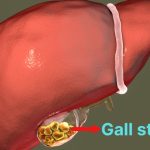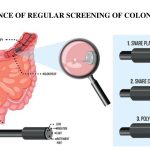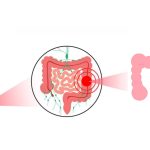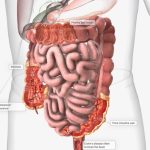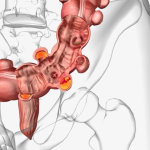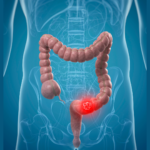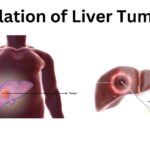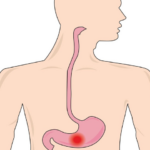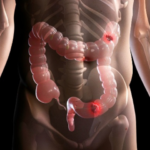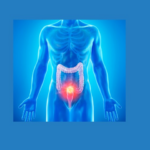Some of the primary alarm symptoms that Dr. Srikanth Gadiyaram, who has been treating patients for more than 20 years, warns his patients to look out for and encourages them to seek a comprehensive check-up if they notice any one or a combination of symptoms regularly include:
- Bleeding
- Upper GI Bleed
- Lower GI Bleed
- Vomiting
- Fever
- Weight Loss
- Difficulty Swallowing
- Chest Pain
A disturbance in the lining of the intestines can be indicated by bleeding in the gut. Identifying the source of bleeding can be challenging, but the type of bleeding can provide valuable insights.
Types of GI BleedingVomiting red blood is called hematemesis. It often indicates upper gastrointestinal bleeding. The symptoms include dark brown emesis and granular material that looks like coffee grounds. When upper GI bleeding stops or decreases, the gastric acid converts red hemoglobin to brown hematin. The usual causes are peptic ulcer, tear in lower food pipe lining and stomach tumors.
Hematochezia, or bleeding from the rectum, typically points to bleeding in the lower gastrointestinal tract. It differs from melena, where the stool appears black and “tarry” due to altered blood from gut flora. It occurs due to significant upper GI bleeding, causing blood to pass quickly through the intestines. The cause are hemorrhoids (pies), inflammatory bowel disease (ulcerative colitis), ischemic colitis and colon or rectal cancers. Small intestinal ulcers or tumors can also present with lower GI bleed.
Vomiting can result from either functional or structural disorders and will require further investigation. Alternatively, vomiting blood is commonly a result of structural problems such as stomach or duodenal ulcers, stomach cancer, esophageal vein bleeding, or esophagitis. Severe vomiting can cause tearing of the lower esophagus, leading to bleeding. Electrolyte disturbances, medications are also common causes for vomiting.
Fever is a result of the body’s response to inflammation, which can be triggered by infections such as acute bacterial gastroenteritis or non-infectious conditions like IBD. Fevers are commonly caused by temporary illnesses, but it’s crucial to look into a persistent fever. Normally, oral temperature remains below 98.6 degrees Fahrenheit (37 degrees Celsius). Fever could be a presenting feature of intraabdominal infections.
People have different motivations for losing weight, not just because of health issues. Functional gut disorders generally do not lead to weight loss, unless there is an underlying depression or anxiety disorder. Losing 10 pounds (4.5 kilograms) in 3 months is often seen as significant and might require further investigation if there is no clear explanation. While infections/inflammatory conditions are benign causes, gastrointestinal cancers are an important cause for weight loss.
Having trouble swallowing food is a significant symptom. There is a partial obstruction in the esophagus. Swallowing can occasionally cause pain, as well as hoarseness or discomfort in the throat. Possible causes include a narrowed esophagus, a fibrous band at the lower end, problems with esophageal motility, or a benign or malignant tumor. It is essential to address dysphagia promptly.
If someone experiences recurring chest pain that may spread to the left arm or neck. Typically triggered by physical activity, but can be alleviated by resting. Pain from gastroesophageal reflux can be alleviated by taking the right dosage of a gastric acid-suppressing medication like a proton pump inhibitor (PPI). Tests for esophageal motility can offer some assistance, but they frequently do not provide a conclusive diagnosis.





